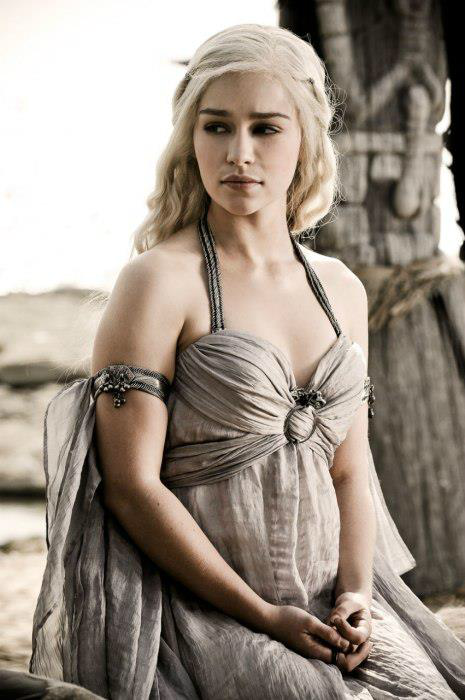 Yes, I have jumped gleefully onto the the Game of Thrones bandwagon and have just finished the #2 of A Song of Fire and Ice: A Clash of Kings. Author, George R.R. Martin, is one of my favorite people right now. I mean, he's absolutely brilliant. I want to dissect these great books and teach a class on international politics based off of this series. YOU DON'T EVEN KNOW. If I had my PhD, there is not a single doubt in my mind that I would be teaching that class. It has all the elements of int'l politics at its finest. However, that is my recently graduated Political Science degree talking. For most people there isn't that viewpoint: just lots of drama. I might even go back and highlight all of the political points and write an essay on this: JUST FOR FUN, and then send it to my college professors. UGH. WHY AM I NOT DOING THAT RIGHT NOW.
Yes, I have jumped gleefully onto the the Game of Thrones bandwagon and have just finished the #2 of A Song of Fire and Ice: A Clash of Kings. Author, George R.R. Martin, is one of my favorite people right now. I mean, he's absolutely brilliant. I want to dissect these great books and teach a class on international politics based off of this series. YOU DON'T EVEN KNOW. If I had my PhD, there is not a single doubt in my mind that I would be teaching that class. It has all the elements of int'l politics at its finest. However, that is my recently graduated Political Science degree talking. For most people there isn't that viewpoint: just lots of drama. I might even go back and highlight all of the political points and write an essay on this: JUST FOR FUN, and then send it to my college professors. UGH. WHY AM I NOT DOING THAT RIGHT NOW.Anyway, I obviously like the series. I promise to not give away any spoilers that happens in book #2. If it happens in the previous book, it's free game. So let me complain about a certain couple of characters: 1) Theon Greyjoy is such a little dick. Proof:
I mean, seriously what is wrong with this guy? Well, besides having serious father issues--the guy is just a complete douche. He's the worst. I have put him on the top of my ~hated~ list. Even putting him above King Joffrey who is also the worst. But Joffrey is 13 and has complete power over Seven Kingdoms, so its more ... justified? The point is: watch out for Theon. His point of view is new to this second book, as well as Davos. Honestly, the book picked up at a slower pace because of this as well. The prologue is focused on a new character, when all I want to know is if Arya is safe, or how Dany is going to make a comeback. It took me a while to adjust to the different tone of the book, (which is why this book is the perfect example of political negotiations).
 On the other hand, I want to note what a bamf Arya Stark is. Needless to say, she is quickly becoming my most ~loved~ character. I really want her to end up on the Iron Throne. (I feel like I shouldn't write that down, or Martin will kill her off. oh. the problems with being a fan of this series). I feel like in the next book she'll really blossom, but we'll see. I really felt that the plot line of A Clash really was focused on two prominent characters: Tyrion and Bran. Tyrion has reached a point of power with his wits, and Bran has developed exponentially. In the first book, I was quickly growing tired of Bran whining about not being able to walk, or be a knight. In this one, I felt myself growing attached to his story.
On the other hand, I want to note what a bamf Arya Stark is. Needless to say, she is quickly becoming my most ~loved~ character. I really want her to end up on the Iron Throne. (I feel like I shouldn't write that down, or Martin will kill her off. oh. the problems with being a fan of this series). I feel like in the next book she'll really blossom, but we'll see. I really felt that the plot line of A Clash really was focused on two prominent characters: Tyrion and Bran. Tyrion has reached a point of power with his wits, and Bran has developed exponentially. In the first book, I was quickly growing tired of Bran whining about not being able to walk, or be a knight. In this one, I felt myself growing attached to his story.
On that note, Martin is an expert on ending books. Seriously the last chapter of A Clash made my life.
Always a fan,
Emily



%2B_02.jpg)











































